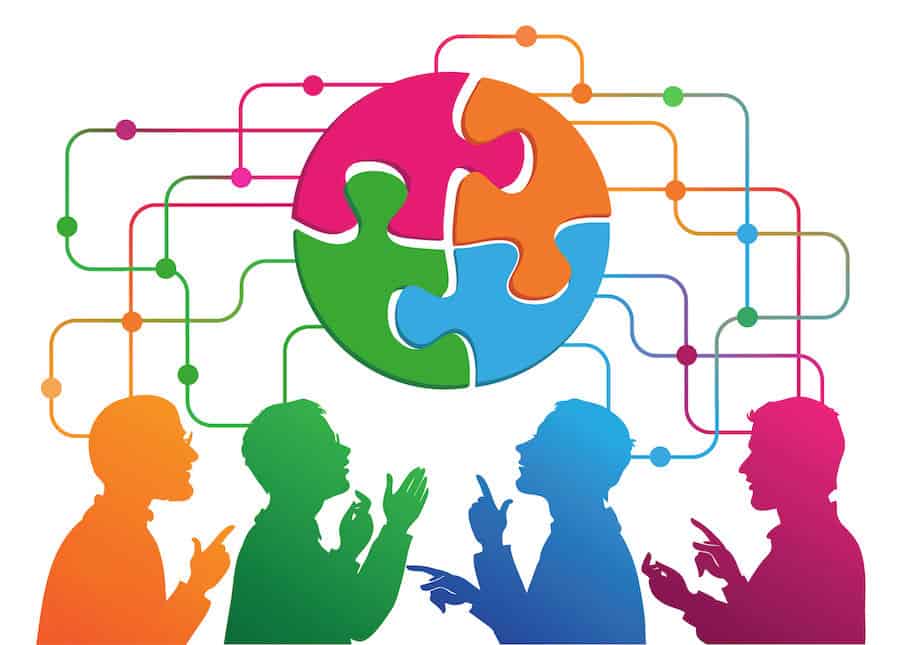Why Some People Learn Better Using Collaborative Learning Techniques

Collaborative Learning
Collaborative or cooperative learning is becoming increasingly popular, especially in digital formats with the rise of a plethora of digital collaboration tools. There is a continual move away from teacher led learning and ideas of ‘knowledge transfer’, which are increasingly being shown to be ineffective in terms of long-term learning, towards a more student centred and group focused learning whereby a facilitator creates a series of events or activities through which students have realisations and create knowledge.
One of the conundrums of student centred and group centred approaches to learning is why some students appear to be better equipped to learn collaboratively than others. Whilst group/collaborative learning does tend to lead to deeper learning outcomes and greater levels of change, not all students tend to engage readily in this form of learning. The question is, why?
Collaborative learning techniques
Collaborative and group learning techniques aim to provide students with the opportunity to discover and learn for themselves through active participation and construction of meaning using their prior experience, knowledge and understanding. In effect, rather than being provided with pre-packaged knowledge to learn by rote, collaborative learning techniques require thinking, discussion, listening, problem solving and a level of engagement and proactivity, rather than passive reception and acceptance.

What collaborative learning has been shown
Collaborative learning has been shown to produce higher levels of learning autonomy, knowledge construction capability and critical thinking. As a result, these forms of group and collaborative learning processes and techniques have been becoming increasingly popular in both organisational learning/training scenarios as well as educational and university contexts over the last 30 to 40 years, for example, problem-based learning, research-based learning, case studies, et cetera.
A new study
A new study looking at both the impact of cooperative learning techniques and what individual characteristics predict higher levels of engagement with them has been conducted by researchers from the University of Las Palmas in Spain.
Findings
- Firstly, the study found that individuals with higher levels of proclivity towards proactivity are significantly more likely to engage positively with collaborative learning and get more out of the experience in terms of realisation and learning.
- Additionally, it was found that learner proactivity predicts greater levels of learning and achievement, as well as more accurate knowledge construction, particularly if the learner is actively involved in the group learning activities and discussions.
- The researchers also discovered that individuals with higher levels of proactivity in terms of learning also have a significantly higher internal locus of control and levels of self-efficacy. What this means is that proactive individuals are significantly more likely to believe that they can control their environment and their achievements. They also have greater confidence in their ability to solve problems. Individuals with external locus of control, who believe that other people and situations control them, tend to have lower levels of confidence in their ability to solve problems and win through and are consequently less likely to be proactive in group or collaborative learning scenarios.
- The study also discovered that individuals will an internal locus of control tend to display significantly more creativity behaviours than individuals with an external locus of control in learning scenarios, for example coming up with more ideas.
- Lastly, the study found that motivation to learn in collaborative environments is significantly tied to an individuals locus of control and with enjoyment and satisfaction of the creative process of knowledge generation in that people with an internal locus of control were found to be significantly more likely to be motivated to learn and enjoy the process, compared to people with an external locus of control

Reference
How educational video impacts student learning, engagement & critical thinking
Be impressively well informed

Get the very latest research intelligence briefings, video research briefings, infographics and more sent direct to you as they are published
Be the most impressively well-informed and up-to-date person around...
